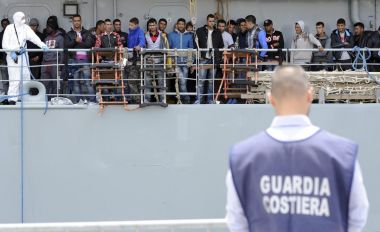Italian dioceses respond to Pope's plea by hosting thousands of migrants
Italian dioceses are hosting an ever increasing number of migrants, new figures have shown.

An estimated 27,000 migrants are being housed in Italian parishes, shrines and monastries following Pope Francis' call for every diocese to welcome the influx of people fleeing persecution, hardship and war. The figures were released by Migrantes, an Italian migration organisation, ahead of the World Day of Migrants and Refugees on 17 January.
The announcement comes amid an increasingly divided debate over migration among Europe's leaders, and Monsignor Giancarlo Perego, Migrantes' director general, warned that "fear is growing".
"Risks are growing not only as concerns the raising of walls, forms of protectionism and limitations on welfare for migrants, but also clashes and social conflict in Europe," he said.
Even in Italy, Perego added, migrants' welcome has become "precarious".
Despite attempts at a Europe-wide deal on relocation, Migrantes figures show that out of the 153,000 migrants that landed on Italian coasts in 2015, some 103,792 are still in the country.
The statistics also show that in 2015 the proportion of asylum requests Italy accepted dropped significantly from 60 per cent in 2014 to 42 per cent in 2015.
''Europe must provide reception and integration,'' said Monsignor Guerino Di Tora, auxiliary bishop of Rome and president of Migrantes and the Episcopal Commission for Migration. He stressed that ''there are human beings behind these numbers".
The World Day of Migrants and Refugees will be celebrated on Sunday and over 6,000 migrants from over 30 nationalities will be in St Peter's Square for the Pope's celebration, according to ANSAmed.
The migrants will then go through the Holy Gate into St Peter's Basilica, where Mass will be officiated by Cardinal Antonio Maria Vegliò, head of the Pontifical Council for Pastoral Care of Migrants and Itinerant Persons.











